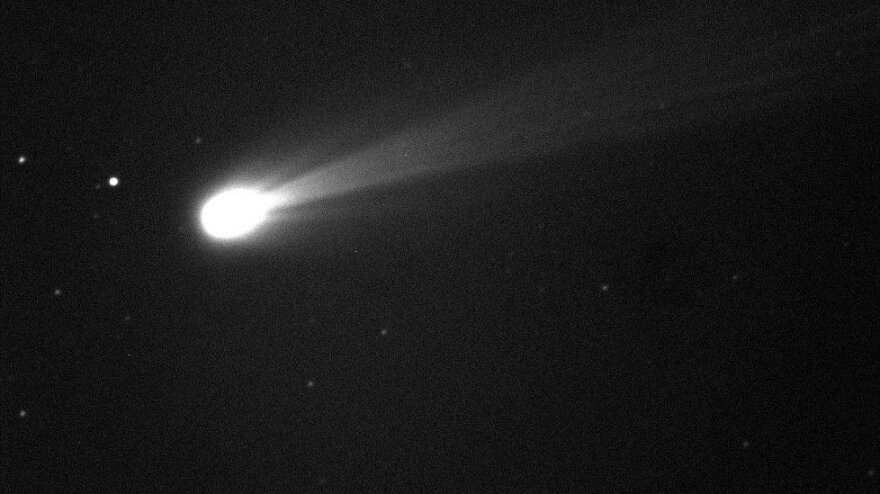Whenever the phrase "comet of the century" gets tossed around, we recommend remembering all the buzz about Kohoutek.
If you were around in 1973, you may recall that Kohoutek was supposed to give us an amazing show.
But we do want to make sure everyone knows about comet ISON, which as NBC News says is headed for a "Thanksgiving Day rendezvous with the sun." If it manages to hold itself together after that, ISON "could reappear in the dawn sky in early December as a potentially spectacular naked-eye object for skywatchers in the Northern Hemisphere," NBC adds.
Space nuts are excited.
According to SPACE.com, a recent brightening by ISON has "experienced comet watchers ... growing more confident that the comet has a chance to be ranked among one of the brightest in the last half century. ... In fact, at its very brightest Comet ISON may even become briefly visible in broad daylight!"
The website has a video that includes tips on how to see ISON this week if you have binoculars or a telescope and a clear sky before dawn. It also has a timetable laying out what ISON could be doing and how to see it over the next couple months.
NASA, as you'd imagine, has put considerable resources online, including a moving graphic showing ISON's projected trip around the sun and how it will pass by Earth and other planets. The space agency is encouraging tweets with the hashtag #WillItBreakUp.
By the way, how did the comet get its name? NASA says it "was discovered in September 2012 by Russian astronomers Vitali Nevski and Artyom Novichonok using data from the International Scientific Optical Network (ISON)."
Copyright 2020 NPR. To see more, visit https://www.npr.org.



